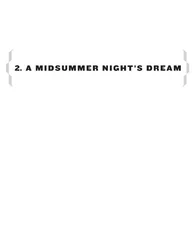“No,” she said, “oh no, please …”
“It’s not them,” Dieter said. “I have to show you this, but it isn’t them.”
Three markers in a row in the afternoon shadows, names painted neatly in black: Charlie Harrison, Jeremy Leung, Annabel (infant) . All three with the same date: July 20, Year 19 .
“It’s not them,” Dieter said again. “Look at the ground. No one’s buried under those markers.”
The horror of seeing their names there. She was weakened by the sight. But he was right, she realized. The earliest markers at the far end of the graveyard were unmistakably planted above graves, the dirt mounded. This pattern continued through to a cluster of thirty graves from a year and a half ago, the dates of death within a two-week span. An illness obviously, something that spread fast and vicious in the winter cold. But after this, the irregularities began: about half of the graves following the winter illness looked like graves, while the others, Charlie’s and Jeremy’s and their baby’s among them, were markers driven into perfectly flat and undisturbed earth.
“It doesn’t make sense,” she said.
“We could ask your shadow.”
The girl who’d followed Kirsten through town was standing at the edge of the graveyard by the foundation, watching them.
“You,” Kirsten said.
The girl stepped back.
“Did you know Charlie and Jeremy?”
The girl glanced over her shoulder. When she returned her gaze to Kirsten and Dieter, her nod was barely perceptible.
“Are they …?” Kirsten gestured toward the graves.
“They left,” the girl said very quietly.
“It speaks!” Dieter said.
“When did they—” But the girl’s nerve failed her before Kirsten could finish the question. She darted out of sight behind the foundation, and Kirsten heard her footsteps on the road. Kirsten was left alone with Dieter, with the graves and the forest. They looked at one another, but there was nothing to say.
A short time after they returned to the Walmart, the tuba returned to camp with his own report. He’d tracked down an acquaintance who lived in the motel. There’d been an epidemic, the man had told him. Thirty people had died incandescent with fever, including the mayor. After this, a change in management, but the tuba’s acquaintance had declined to elaborate on what he meant by this. He did say that twenty families had left since then, including Charlie and the sixth guitar and their baby. He said no one knew where they’d gone, and he’d told the tuba it was best not to ask.
“A change in management,” the conductor said. “How corporate of them.” They’d discussed the grave markers at some length. What did the graves mark, if not deaths? Did the markers await a future event?
“I told you,” Kirsten said, “the midwife said there was a prophet.”
“Yeah, that’s fantastic.” Sayid was unpacking a crate of candles without looking at anyone. The sixth guitar was one of his closest friends. “Just what every town needs.”
“Someone must know where they went,” the conductor said. “They must’ve told someone. Doesn’t anyone else have friends here?”
“I knew a guy who lived in the IHOP,” the third cello said, “but I checked earlier and it was boarded up, and then someone in the Motor Lodge said he’d left town last year. No one would tell me where Charlie and Jeremy went.”
“No one tells you anything here.” Kirsten wanted to cry but instead she stared at the pavement, pushing a pebble back and forth with her foot.
“How could we have left them here?” Lin shook out her fairy costume, a silver cocktail dress that shimmered like the scales of a fish, and a cloud of dust rose into the air. “Graves,” she said. “I can’t even begin to—”
“Not graves,” Dieter said. “Grave markers .”
“Towns change.” Gil leaned on his cane by the third caravan, gazing at the buildings and gardens of St. Deborah by the Water, at the haze of wildflowers along the edges of the road. The McDonald’s sign caught the last of the sunlight. “We couldn’t have predicted.”
“There could be an explanation,” the third cello said, doubtful. “They could have left and, I don’t know, someone thought they were dead?”
“There’s a prophet ,” Kirsten said. “There are grave markers with their names on them. The midwife said I should stop asking questions and that we should leave quickly. Did I mention that?”
“Did we not acknowledge you loudly enough the first six times you mentioned it?” Sayid asked.
The conductor sighed. “We can’t leave till we know more,” she said. “Let’s get on with the evening, and we’ll make inquiries after the show.”
The caravans were parked end to end, the Midsummer Night’s Dream backdrop — sewn-together sheets, grimy now from years of travel, painted with a forest scene — hung on them. Alexandra and Olivia had gathered branches and flowers to complete the effect, and a hundred candles marked the edges of the stage.
“I was talking to our fearless leader,” August said to Kirsten later, between tuning his instrument and going to join the rest of the string section, “and she thinks Charlie and the sixth guitar must have gone south down the lakeshore.”
“Why south?”
“Because west’s the water, and they didn’t go north. We would’ve run into them on the road.”
The sun was setting, the citizens of St. Deborah by the Water gathering for the performance. Far fewer of them now than there had been, no more than thirty in two grim-faced rows on the grit of the former parking lot. A wolfish gray dog lay on its side at the end of the front row, its tongue lolling. The girl who’d followed Kirsten was nowhere in sight.
“Is there anything to the south, though?”
August shrugged. “It’s a lot of coastline,” he said. “There’s got to be something between here and Chicago, wouldn’t you think?”
“They could’ve gone inland.”
“It’s possible, but they know we never go into the interior. They’d only go inland if they didn’t want to see us again, and why would they …” He shook his head. None of it made sense.
“They had a girl,” Kirsten said. “Annabel.”
“That was Charlie’s sister’s name.”
“Places,” the conductor said, and August left to join the strings.
WHAT WAS LOST IN THE COLLAPSE:almost everything, almost everyone, but there is still such beauty. Twilight in the altered world, a performance of A Midsummer Night’s Dream in a parking lot in the mysteriously named town of St. Deborah by the Water, Lake Michigan shining a half mile away. Kirsten as Titania, a crown of flowers on her close-cropped hair, the jagged scar on her cheekbone half-erased by candlelight. The audience is silent. Sayid, circling her in a tuxedo that Kirsten found in a dead man’s closet near the town of East Jordan: “Tarry, rash wanton. Am I not thy lord?”
“Then I must be thy lady.” Lines of a play written in 1594, the year London’s theaters reopened after two seasons of plague. Or written possibly a year later, in 1595, a year before the death of Shakespeare’s only son. Some centuries later on a distant continent, Kirsten moves across the stage in a cloud of painted fabric, half in rage, half in love. She wears a wedding dress that she scavenged from a house near New Petoskey, the chiffon and silk streaked with shades of blue from a child’s watercolor kit.
“But with thy brawls,” she continues, “thou hast disturbed our sport.” She never feels more alive than at these moments. When onstage she fears nothing. “Therefore the winds, piping to us in vain, as in revenge, have sucked up from the sea contagious fogs.…”
Читать дальше












